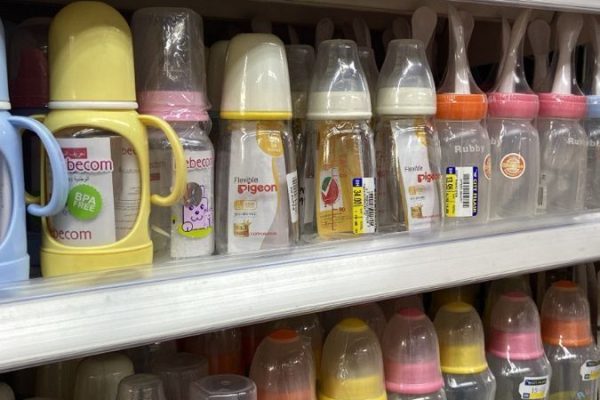Japan, a nation renowned for its culinary precision and unique food culture, is steadily navigating the expanding landscape of halal products. As global connections strengthen and Muslim populations within Japan and among its visitors grow, the demand for ethically sourced and prepared food items is becoming increasingly significant. Within this evolving market, two seemingly disparate items – halal tallow and orange juice – offer intriguing insights into the complexities and opportunities of Japan’s halal food industry.
Halal Tallow: From Niche Ingredient to Versatile Commodity
Tallow, rendered animal fat, has a long history in culinary traditions worldwide. However, for Muslim consumers, its permissibility hinges entirely on the animal’s adherence to halal slaughtering principles. In Japan, where beef, particularly Wagyu, is highly prized, the concept of halal tallow presents both a challenge and an opportunity.
Historically, traditional Japanese cuisine hasn’t prominently featured rendered animal fats in the same way Western or Middle Eastern cuisines might. The focus has often been on leaner meats, seafood, and vegetable-based dishes. This means that the production and widespread availability of halal tallow in Japan have, until recently, been limited. However, with the rising awareness of halal dietary requirements, there’s a growing interest in incorporating halal-certified ingredients across various food sectors.
Halal tallow, sourced from beef slaughtered according to Islamic rites, is gaining traction not just as a cooking fat, but also in other industries. Its rich, savory flavor makes it an excellent choice for deep-frying, braising, and enhancing the taste of various dishes. For Muslim residents and visitors, access to halal tallow allows them to prepare a wider range of traditional dishes at home or enjoy authentic flavors in halal-certified restaurants.
Beyond the culinary realm, halal tallow finds applications in non-food industries. It is a valuable ingredient in skincare products, soaps, and even candles, aligning with the clean beauty movement that favors natural, ethically sourced components. This diversification of use further fuels the demand for certified halal tallow, prompting producers to explore its potential beyond the immediate food sector.
Challenges in the production of halal tallow in Japan include ensuring the entire supply chain, from animal rearing to slaughter and rendering, adheres to stringent halal standards. This often requires collaboration with certified slaughterhouses and meticulous handling to prevent cross-contamination with non-halal products. Despite these hurdles, the potential for growth is evident, particularly as Japan seeks to cater to a more diverse consumer base and expand its export opportunities for halal-certified goods.
Orange Juice: A seemingly simple, yet complex, halal quest
Orange juice might appear to be an inherently halal product, given its fruit-based origin. However, the journey to guarantee its halal status in a country like Japan can be surprisingly intricate. The core concern lies in potential contamination during processing, the use of non-halal additives, or the presence of alcohol as a by-product of fermentation, even in trace amounts.
While many standard orange juices in Japan are likely permissible for Muslim consumption due to their simple composition, the absence of explicit halal certification can create apprehension among consumers. Muslims often seek clear assurance that no haram (forbidden) ingredients or processes have been involved. This includes scrutiny of:
- Processing aids: Some juice clarification agents or defoamers might contain animal-derived ingredients, which, if not from halal sources, would render the juice impermissible.
- Flavorings and additives: While less common in % pure orange juice, some juice blends or drinks might contain flavor enhancers or preservatives that are not halal.
- Cross-contamination: In facilities that process both halal and non-halal products, there’s a risk of cross-contamination if proper segregation and cleaning protocols are not strictly followed.
- Ethanol content: Naturally occurring ethanol from fruit fermentation, even in minuscule amounts, can be a point of concern for some stricter interpretations of halal. While most natural fruit juices contain trace amounts, commercial practices should ensure this remains below acceptable thresholds for halal certification bodies.
The availability of explicitly halal-certified orange juice in Japan is still developing. While some online halal food stores and specialty markets do import or stock certified juices, finding them in conventional Japanese supermarkets can be challenging. This gap highlights the need for greater awareness and investment from Japanese beverage manufacturers to cater to this growing demand.
The demand for halal orange juice stems from both the increasing Muslim resident population and the influx of Muslim tourists. For these consumers, having readily available and clearly labeled halal options provides peace of mind and enhances their overall experience in Japan. As Japan continues to promote itself as a welcoming destination for international visitors, addressing these seemingly small but significant dietary needs becomes crucial.
The Broader Landscape of Halal in Japan
The stories of halal tallow and orange juice are microcosms of a larger trend in Japan. The country’s halal market is undergoing a significant transformation, driven by several factors:
- Growing Muslim Population: Japan’s Muslim population, while still relatively small compared to other nations, is steadily increasing due to immigration and conversions. This creates a consistent domestic demand for halal products.
- Inbound Tourism: Japan has actively sought to attract more tourists from Muslim-majority countries like Malaysia, Indonesia, and the Middle East. Providing halal food options is a critical component of this strategy.
- Global Halal Industry Growth: The global halal market is a multi-trillion-dollar industry, encompassing not just food but also cosmetics, pharmaceuticals, tourism, and finance. Japanese companies are recognizing the economic potential of tapping into this market for export purposes.
- Health and Ethical Concerns: Beyond religious adherence, some non-Muslim Japanese consumers are also showing interest in halal products due to perceived benefits related to food safety, hygiene, and ethical animal treatment.
Japanese halal certification bodies, such as the Japan Halal Association and Japan Islamic Trust, play a crucial role in bridging the gap between Islamic dietary laws and Japanese manufacturing practices. They work to audit and certify products and facilities, providing assurance to Muslim consumers and facilitating trade.
While progress is being made, challenges remain. These include a general lack of widespread awareness of halal requirements among mainstream Japanese businesses, the complexity and cost of obtaining certification for smaller enterprises, and the need for a more robust and accessible halal supply chain within the country.








